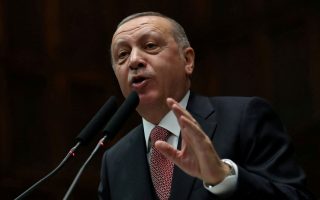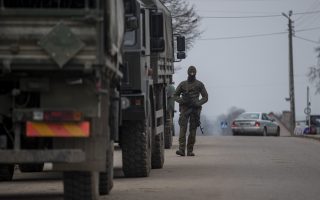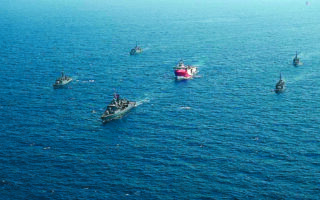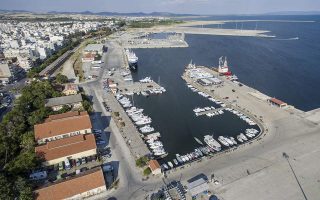Νext time we should shoot down the drones
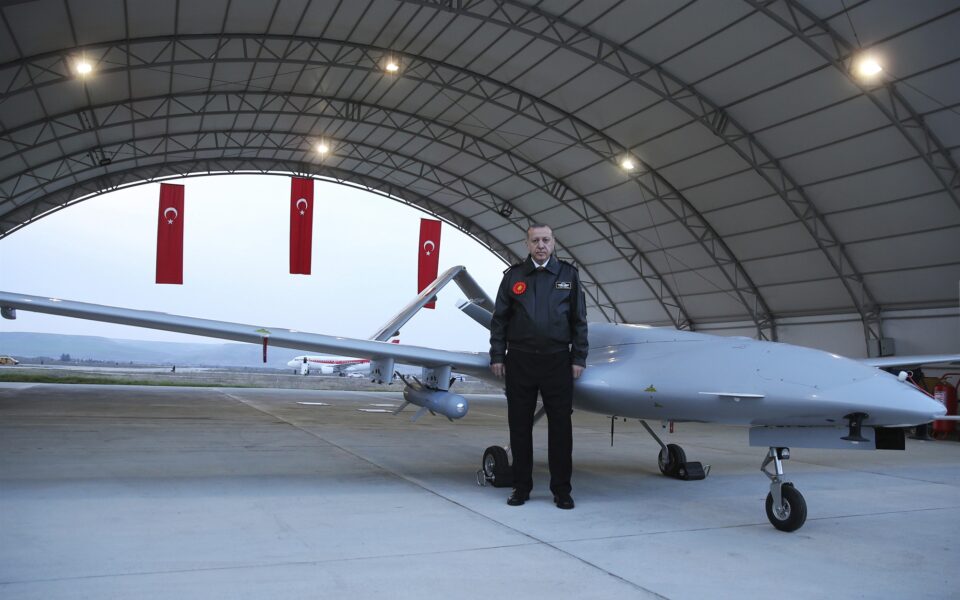
Turkey is ruled by an authoritarian leader who follows in the footsteps of Russian President Vladimir Putin. Authoritarian regimes always try to make up for their failure to modernize and democratize their country by pursuing a policy of territorial expansion, provocation and conflict. The regime in Ankara should know that triggering a heated incident in the Aegean would inflict a grave cost on Turkey because Greece has solid institutions and strong defenses.
Turkish officials should also revisit their history books and stop demanding the demilitarization of the eastern Aegean islands because, if nothing else, Ankara has not fulfilled its obligations under the Conference of London, even, and has actually breached the Treaty of Lausanne in many ways, including on the self-governing status of the islands of Imvros and Tenedos.
Parallel worlds
Ankara tends to mimic Moscow’s moves. Russia is hinging its invasion of Ukraine and the tactic of massive artillery strikes on the unequal terms of the war, issuing reminders of its nuclear capabilities. In other words, it is waging a war in which it can invade without worrying about retaliation against its internationally recognized territory. Turkey is doing the same thing. It is currently acquiring nuclear knowhow from Russia, while Pakistan is well placed to supply Turkey with what it needs become a nuclear power.As I have mentioned before, Putin has adopted a policy and strategy straight out of the handbook of Catherine the Great on the partition and absorption of Poland after 1770.
Erdogan, similarly, is pursuing a policy inspired by the Ottoman Empire. He likes to threaten states that won their independence from Ottoman rule by saying that Turkey’s military forces “could come at night.” Meanwhile, he seems to believe that Turkey reserves special rights over countries such as Greece by virtue of being a former colonial power. Faced with this sultan-like mentality, Greek foreign policy has to be clear, unyielding and decisive. Sure, Greece will continue to pursue talks with Turkey. However, it should never discuss the latter’s colonial demands. It should only discuss actual problems on the basis of good neighborly relations and international law.
Roots of aggression
Turkey is aggressive partly because Erdogan is in pre-election campaign mode and is hoping to deflect public attention away from the increasingly serious problems at home. However, the aggression is primarily a result of Ankara’s expansionist plans, its efforts to challenge Greek rights deriving from international law and historical facts, to create so-called “grey zones” and, subsequently, to appropriate them.
Political parties in Greece are rightly calling Turkey out on its violations of international law, but Greece needs to go further than that. Abiding by international law above all means enforcing it through and through. It is unacceptable that five years after I drafted the relevant presidential decrees, Greece has yet to close off its bays and adopt straight baseline delimitations per its legal right. Greece ought to immediately expand its territorial waters around Crete (and not just south of the southern Aegean island) to 12 nautical miles. Baseline delimitations and expanded territorial waters would overturn the exclusive economic zone delineated by the illegal Libya-Turkey memorandum on maritime boundaries in the Eastern Mediterranean.
Political parties in Greece are rightly calling Turkey out on its violations of international law, but Greece needs to go further than that
Greece must also remain steadfast on defending its rights. For example, it is unacceptable that Turkey occupied an islet in the Evros River and for the responsible government minister in Athens to claim that “it does not matter as it was occupied for only a few hours.” It is unacceptable that Turkish drones should fly over Greek territory and yet we still fail to inform Ankara, our allies, the United Nations and the international community that the next one will be taken down using electronic means. It is unacceptable that we act as though nothing is amiss when Turkish military aircraft fly over the Greek mainland (like, for example, in the area of Alexandroupoli in northern Greece) or that the Greek state remains indifferent to the fate of Cyprus or the new pro-Turkish scenarios apparently adopted by part of the international community on the Cyprus issue.
It is unacceptable that Turkey says it will blackmail Sweden and Finland over NATO membership and Greece does not make clear that it will not accept, as it eventually did, an agreement that harms its interests (the decision to lift the arms embargo imposed on Ankara). Or that the New Democracy government is okay with the European Union developing a policy on Libya without Greek involvement, a role that had been secured while I was minister. If we carry on this way, we will be sending Turkey the wrong message; i.e. that we are weak or intimidated. I should emphasize here that authoritarian regimes, such as Erdogan’s, interpret every sign of weakness and every concession as an invitation for even greater aggression.
Deterrence and dialogue
Our policy must combine clarity, red lines, the sustained implementation of the rights deriving from international law and insistence on dialogue with Turkey – not for the sake of making a good appearance (as was the case with the exploratory talks) but a substantial effort. The aim must be to, on one hand, maintain constant contact and prevent, to the extent that it is possible, an escalation of tensions, committing Turkey to dialogue; and, on the other, to at least solve minor, low-politics issues which can be key to keeping mistrust at manageable levels. It is a twofold strategy: countering Turkish aggression and insisting on the peaceful settlement of actual disputes.
As minister, I came under fire from many directions because I did not succumb to Turkish pressure and because, at the same time, I chose to keep open the channels of communication with Turkey. Critics do not want to accept the fact that escalation was prevented during my tenure, while Greece did not experience the new types of violations or the intensified provocations seen in the past three years. This is because we followed a policy that combined strict principles with dialogue. We relied on diplomatic practice which has now given way to vacuous PR stunts. Such tricks may help the ruling conservatives in the short run, but they are nevertheless detrimental to the country’s interests.
Nikos Kotzias served as Greece’s foreign minister from 2015 to 2018.
